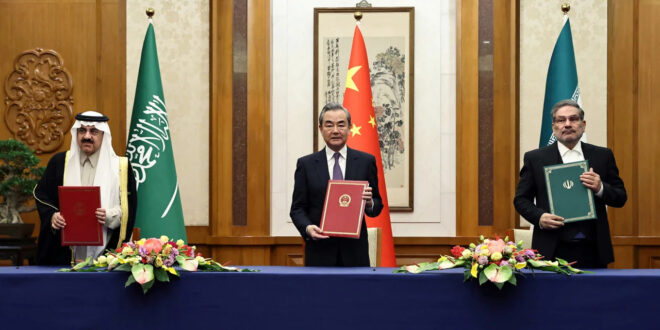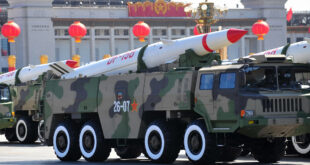China and Saudi Arabia have been strengthening their ties in recent years, raising concerns in the United States about the impact of this alliance on American interests in the Middle East.
In 2016, Chinese President Xi Jinping visited Saudi Arabia and signed several agreements, including a deal to build a high-speed railway between Riyadh and Dammam. This was followed by the signing of several other agreements, including one to build a $10 billion petrochemical complex in China by Saudi Arabia’s state-run oil company, Aramco.
In 2019, Saudi Arabia’s Crown Prince Mohammed bin Salman visited China, where he signed deals worth $28 billion. These included agreements to build a refinery and petrochemical complex in China and to cooperate on nuclear energy development.
The growing economic ties between China and Saudi Arabia have raised concerns in the United States, particularly as China seeks to expand its influence in the Middle East.
Some experts have suggested that China’s growing presence in the region could challenge American dominance in the area.
Additionally, China’s close relationship with Saudi Arabia could give it an advantage in the global oil market. Saudi Arabia is the world’s largest oil exporter, and China is the world’s largest oil importer. By strengthening their ties, China could gain greater access to Saudi Arabia’s oil reserves and increase its leverage in global oil markets.
However, some experts argue that the United States should not be overly concerned about China’s growing relationship with Saudi Arabia. They point out that Saudi Arabia has long been an ally of the United States and that its relationship with China is primarily driven by economic interests.
Furthermore, the United States remains the dominant military power in the Middle East, with military bases in several countries, including Saudi Arabia. This gives the United States significant leverage in the region, regardless of China’s growing economic ties with Saudi Arabia.
Despite these reassurances, some experts believe that the United States should be paying closer attention to China’s growing influence in the Middle East. They argue that China’s Belt and Road Initiative, a massive infrastructure project aimed at connecting China with other parts of the world, including the Middle East, could allow China to expand its economic and political influence in the region.
Furthermore, China’s close relationship with Iran, a major rival of Saudi Arabia, could complicate its ties with the kingdom. Iran and Saudi Arabia have long been engaged in a regional power struggle, and China’s close relationship with Iran could make it difficult to maintain good relations with Saudi Arabia.
In conclusion, while China’s growing relationship with Saudi Arabia may pose some challenges for the United States, the United States should not be overly concerned at this time. However, it is important for the United States to closely monitor China’s activities in the Middle East and to take steps to ensure that its interests in the region
are protected.
 India One News
India One News





